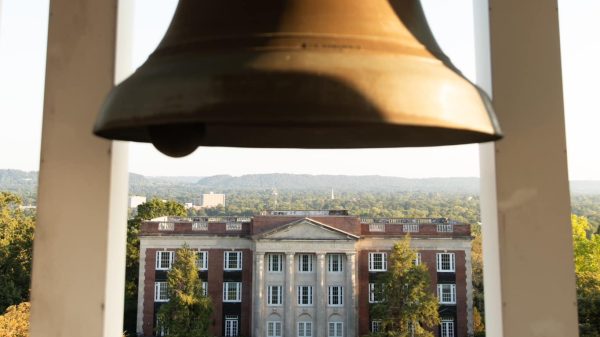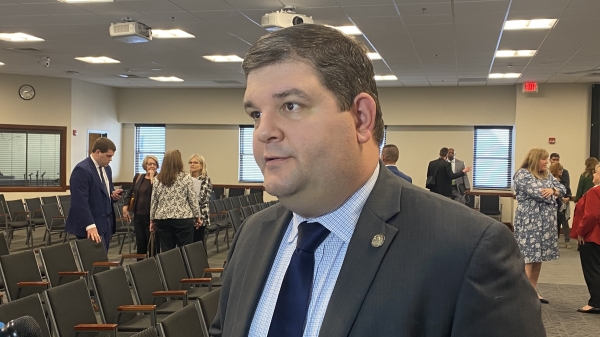I immigrated to the United States from India in 1985 as a college dropout without a penny to my name.
I was just a kid, far away from home, who wasn’t sure what direction my life would take, or what my prospects living in this new country would be. That’s a scary thing for a young, homesick man who was not used to living in a place with limitless opportunity.
But that all changed.
This country gave me the greatest gift in the world, the gift of the American Dream. Through hard work, dedication, and wonderful and supportive mentors along the way – I learned I could seize the opportunities this country has to offer and make something of myself. I learned firsthand that anyone who calls this country home, with ceaseless hard work and perseverance, can make it here and live a successful life.
A key pillar of the American Dream is the ability for enterprising young people to be able to start a business, hire employees, and give back to their communities. As a UAB professor for 18 years, I was able to teach, conduct research, and pursue entrepreneurial opportunities that would eventually allow me to give back to Alabama through supporting successful businesses that create great jobs for our state.
For Alabama businesses and startups to be successful, public-private partnerships with academic institutions are absolutely critical. However, that’s not the case today. The way the state’s ethics laws are currently structured, university faculty and researchers are hamstrung in their ability to develop these partnerships, and it has a negative impact on Alabama’s economy and future growth.
Our state needs to simplify our ethics rules to create more clarity to empower researchers, not restrict them. Our current law is the same for legislators and the governor as it is for university researchers and school teachers. Those public servants are worlds apart, so it’s no wonder the current ethics law is difficult to understand. University researchers are not elected officials, and they shouldn’t be subject to the same rules as politicians.
University researchers routinely develop intellectual property that can, and should be, commercialized to create jobs and economic growth in Alabama. We see other states’ economies enjoying great benefits from these activities. However, in Alabama our current law limits university researchers’ ability to pursue commercial opportunities from their research.
For example, some universities only allow their researchers to devote 20 percent of their time, including personal free time, to the commercialization of ideas. You cannot create a groundbreaking enterprise with these limitations. We also cannot recruit the best researchers to our great public universities if they are more limited in what they can do here than in other states.
Additionally, the complexity and indistinct nature of the current laws makes researchers afraid to chase their goals because of fear that they may accidentally break the law. In turn, this often leads to our state’s top intellectual academic talent leaving for our neighboring states who have more clarity in their laws and are aggressively trying to recruit them. This means less brain power, less innovation, and less economic growth in this state.
Simply put, the way our current law is structured limits our universities’ ability to attract and retain talent.
These restrictions are the reason why I left a remarkable institution like UAB which I hold dear to my heart. I couldn’t properly help new and emerging Alabama businesses be successful while working under the confusing cloud of our current law.
A bill introduced by State Representative Matt Simpson would help address these barriers by simplifying the rules for our universities and researchers. His bill makes clear that they can develop and commercialize their discoveries so long as they follow the policies their universities establish. This would be a fantastic step in the right direction and place our public universities on the same footing as their peer institutions in other states.
Even though I am no longer employed in the public sector, I am one of many in the private sector who are committed to promoting entrepreneurship and the development of new technologies across the state. To further those goals, I serve as chairman of the Alabama Capital Network, a nonprofit, whose membership includes a wide array of individuals and organizations that support small business innovation in Alabama.
To ensure our state’s ability to compete in the global arena, it is essential that our laws provide for collaboration with our state’s educational and research institutions. Rep. Simpson’s solution to this problem should be enacted so we can make the American Dream more available to those who call Alabama home.
Sanjay Singh is an academic, entrepreneur, and early-stage startup investor. Singh was a faculty member at University of Alabama at Birmingham for 20 years. Along with his former students and colleagues, Sanjay built and exited multiple startups. Singh now serves as Chairman of the Alabama Capital Network.





















































